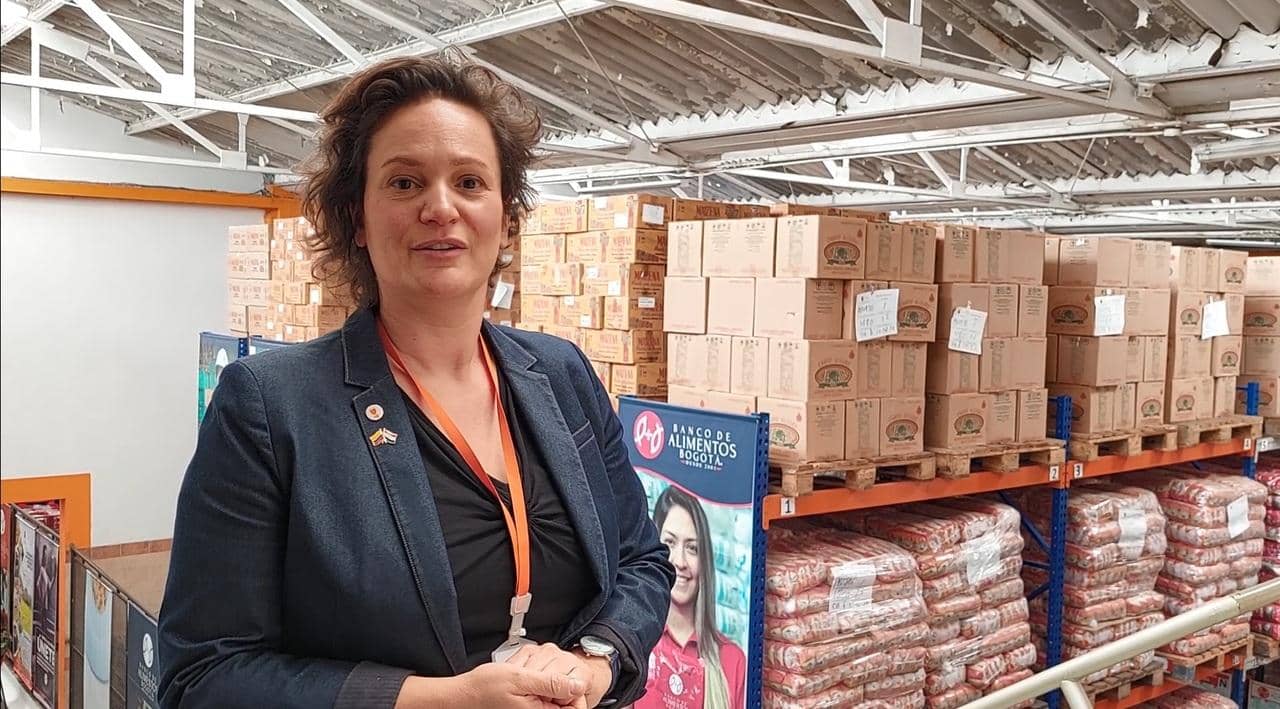The conformation of Bogotá as the capital city of Colombia resulted in a rapid and massive concentration of inhabitants along with the challenge of feeding a growing population in an organized and periodic manner. In consequence, the need for a centralized wholesale supply market capable of collecting the country's agri-food products and ensuring its distribution was increasingly important. In 1970, logistics experts of the University of Michigan and the United Nations Food and Agriculture Organization – FAO developed a feasibility study of a large food supply center, which led to the inauguration of the Wholesale Market Corporation - Corabastos. Corabastos was created as a national corporation linked to the Ministry of Agriculture and Rural Development, the Government of Cundinamarca and the Mayor's Office of Bogotá, public entities with 47.92% of the total shares of the corporation.
Beeld: LAN / LAN
The Agricultural department of the Netherlands Embassy in Bogota – LAN Bogota, visited Corabastos to learn more about the internal operation and agrologistics scheme within the most important wholesale market in Colombia, and second in Latin America by volume of goods transported, where the food commercialization and distribution for the entire country is concentrated. Corabastos has been a pioneer in the commercial area due to its ability to distribute and commercialize all agri-food goods including both national and foreign products, but also for its decisive role within the country's economy since they are food price fixers that are communicated to through national media such as radio and consumer newsletters.
Beeld: © LAN / LAN
The LAN team also took the opportunity to know a social organization called Bogotá’s Food Bank, located inside Corabastos. Its mission is to recover food that for reasons of size and/or demand standards (such as esthetic appearance, among others) could not be sold and was destined to be discarded. These rescued foodstuffs are now donated to vulnerable populations in the country through support schemes with other NGO’s. Bogotá’s Food Bank was founded in 2001 as a joint effort between private companies, public sector, academia and non-profit organizations, aiming at helping populations suffering from food insecurity and malnutrition. In alliance with Corabastos, this entity takes care of the classification, storage and distribution of donated food that is mainly destined to humanitarian aid missions, schools, nursing homes, orphanages and shelters.
Beeld: © LAN / LAN
According to the FAO, in Colombia 3.2 million people suffer from food insecurity in a country where 9.76 million tons of food is loss or wasted, which could be used to meet the needs of the most vulnerable. For this reason, this social initiative contributes to the food and nutritional security of a significant percentage of Colombians. Under the slogan #TogetherAgainstHunger, more than 13 thousand tons of food have been recovered of which 30% correspond to fruits and vegetables, 29% beverages, 20% groceries and grains, 10% dairy, 4% bakery and 3% meat. Now, of the fruits and vegetables donations, 69% correspond to donations made by Corabastos and the rest comes from industries and retail markets. The donated food has been destined to 1,610 foundations throughout the country since its inception, this is made possible by the 130 permanent staff in collaboration with 1,150 student volunteers from 40 Universities and more than 3,900 external volunteers who provide support in the area of logistics and distribution.
These joint efforts contribute to the achievement of the Sustainable Development Goals – SDG’s, especially those related to responsible production and consumption, where the Food Bank in cooperation with Corabastos has been working together to minimize food waste. As a result of this collaboration, only 1% of food is lost in Corabastos, which has represented a great achievement considering that 12 thousand tons of food enter the wholesale market daily.
Beeld: © LAN / LAN
The visit to Corabastos and the Bogota Food Bank have been of great interest to the LAN team as they are part of the Feeding the Cities working agenda, especially the topics related to agrologistics and food safety. You can watch the video of our Agricultural Counselor - Léontine Crisson who shares her impressions and experience on this visit here:
